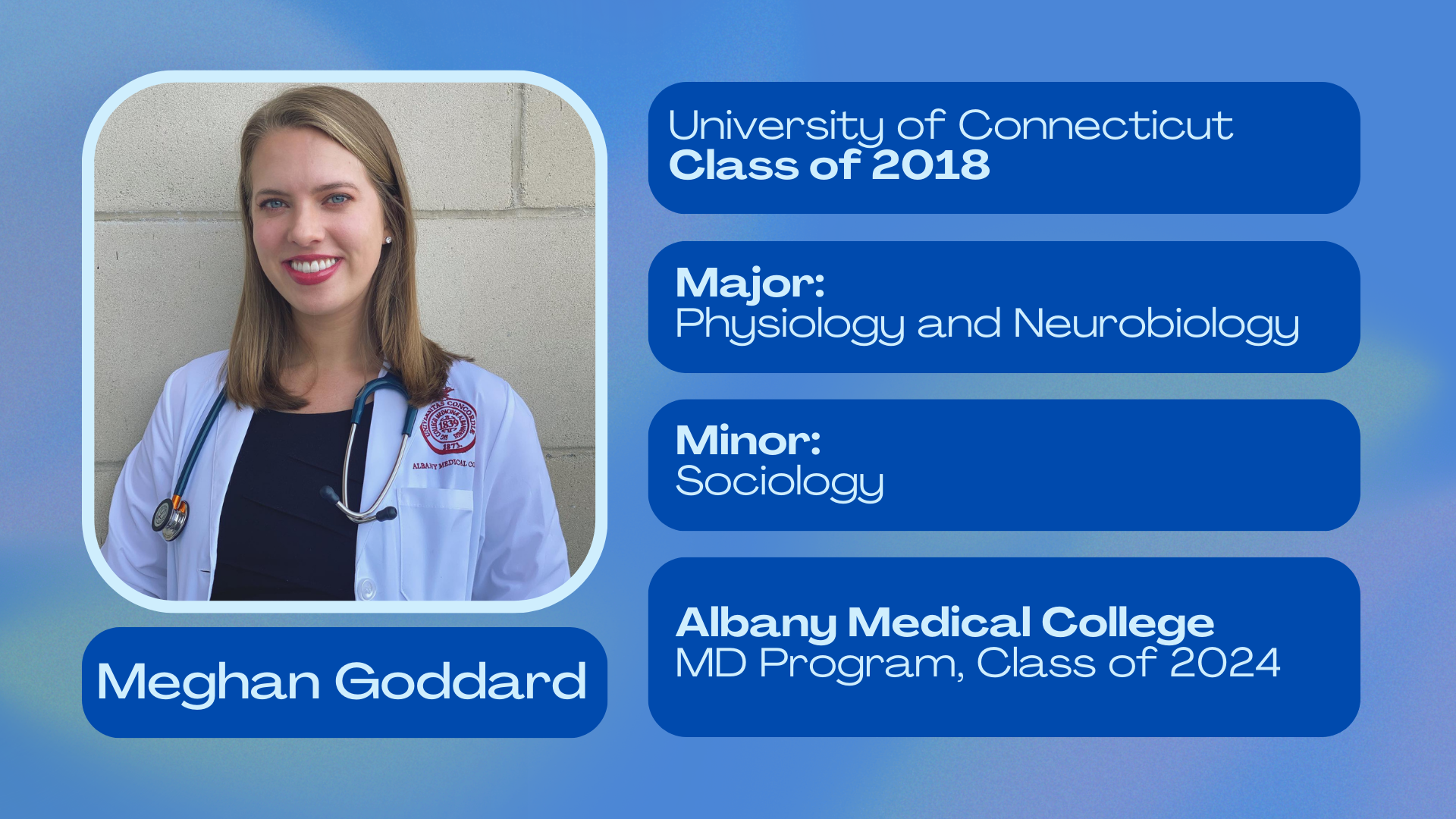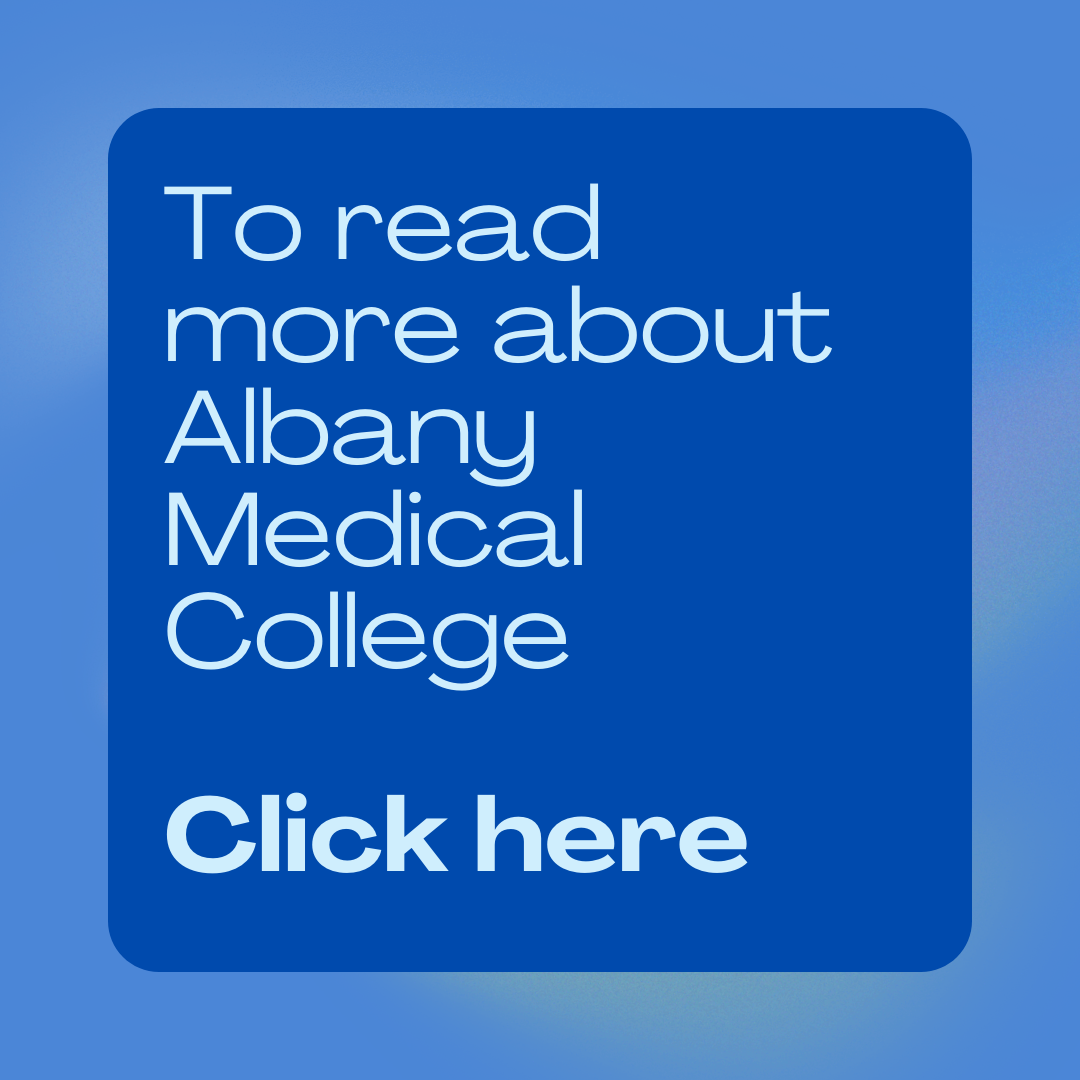Why did you choose to pursue a career in healthcare?
I spent most of my life participating in different volunteer opportunities in my local community. I went on to do so globally as well and saw the many disparities people face. I hated politics but wanted to make a change. The best way for me to do that was a career that would help people on an individual level. I grew up with my nurse mother sharing her patient stories and realized quickly that medicine would be the source of my giving back.
What were some meaningful extracurricular activities that you were involved in while at UConn?
SHAPE (Students Helping to Achieve Positive Esteem) — SHAPE is about promoting body positivity and standing up to the unrealistic body image ideals that are shoved into our brains. It also spreads awareness of eating disorders. This group taught me so much about a population I had never worked with as well as the struggles almost every woman deals with. I learned how to really connect with people about intimate topics very quickly, a skill all health professionals need.
Community Outreach (CO) — I worked with Generations Connect, volunteering and later leading a program with the local nursing home and senior center. I still continue to volunteer with the elderly; I did so in both of my gap years and I hope to lead a program here in medical school because of this amazing experience. CO is an incredible organization with so many opportunities to get involved in the local community. It's a great way to make an impact as a busy student.
Personal Care Assistant (PCA) — Working in undergrad is hard, but teaches you to balance many things, and I was at a great medical practice working with someone in the community. I also formed a lasting, meaningful connection.
What were some challenges you have faced along your healthcare journey so far, and how have you overcome them?
Some of the biggest challenges I still deal with are the frustration with our healthcare system, our state social service resources, and our national politics surrounding healthcare rights. These challenges will unfortunately continue throughout all of our careers. However, as a medical student, I do finally feel like I have a voice and ways to advocate for people in my community. As a physician, this voice will be even louder.
As far as my personal journey to medical school, I definitely was not the strongest candidate. I had great experiences, formed amazing relationships with mentors, and worked my butt off my last two years of undergrad to get where I was. However, my GPA was still very average to even a bit below for people applying to med school. I had to take the MCAT twice and my second score, while good, was still very average. The most important thing was to remain confident in my strengths. I knew I would be a great doctor and do really well with people. Luckily, a few schools agreed and I am now doing well as a second-year med student. Being average in the healthcare field is NOT average — you are still amazing and all the hard work you put in will not go unnoticed.
What did you do during your growth year(s) and what did you learn?
I took two gap years. In these, I learned a lot about myself. One, I learned that I definitely needed that break. I was burnt out by the end of senior year after taking the MCAT, finals, and applying to med schools. I also learned that there are bigger things in life than grades, something I have continued to remember in med school. In my first year off, I did part-time research at Boston Children's in a Cerebral Palsy clinic. I also worked full-time as a waitress to make some money. I learned that I didn't love research, but I loved being in the room with patients and watching their interactions with doctors (duh — we want to be doctors!). My second year, I worked as a scribe at Milford Hospital. I loved this and highly recommend it. I worked with a variety of specialties and doctors, seeing how they each work differently. I still think about many of those patients and physicians when I read cases now or think about the kind of physician I want to be. Unfortunately, the pandemic cut that year a bit short, but I was able to get about 10 months of scribing in, then I enjoyed my summer (isolated) before school. I highly recommend taking as much time off as you need. By the end of my second gap year, I was fully re-charged and ready to learn again.
What are some ways that you take care of your mental health and overall wellbeing?
Exercise is the most important thing that keeps me feeling mentally stable. I know when I slack off exercising, I will slack in other areas of my life like school, mental well-being, sleep, relationships, etc. Even if this means choosing to walk to the library instead of drive, that little physical stimulation is so important for me. Socializing is the other way I take care of myself. I love to be around people and made sure to have roommates in med school. Luckily, everyone in med school is in the same boat and they are incredibly kind, considerate people like you, so it is easy to make friends and have support all the time.
What advice do you have for aspiring pre-health students?
Be you! Your hard work will pay off and you will do amazing. Everyone applying to medical school is amazing and smart, but no one is those things in the exact way you are. Be confident in what you have accomplished, but excited and ambitious about what there is left. The learning never stops! Also, take advantage of every opportunity. This is advice I've given to a lot of first years. If you see a really interesting speaker but you're worried about that 1 hour away from studying — still go. You will get the studying done and do well but gain more from that physician speaking or that event where you volunteered with children.
What’s something that you wish you knew when you were in college?
How important the non-academic parts of college were: the forever friendships I made, the extracurriculars I loved, the basketball games, the connections with people in the community, the experiences from working at Chuck and Auggie's, hanging out in the union, and talking with any mentors/professors who would listen. I wish I had embraced more of those opportunities. Although I do very much value my many hours in Homer Babbidge Library.

